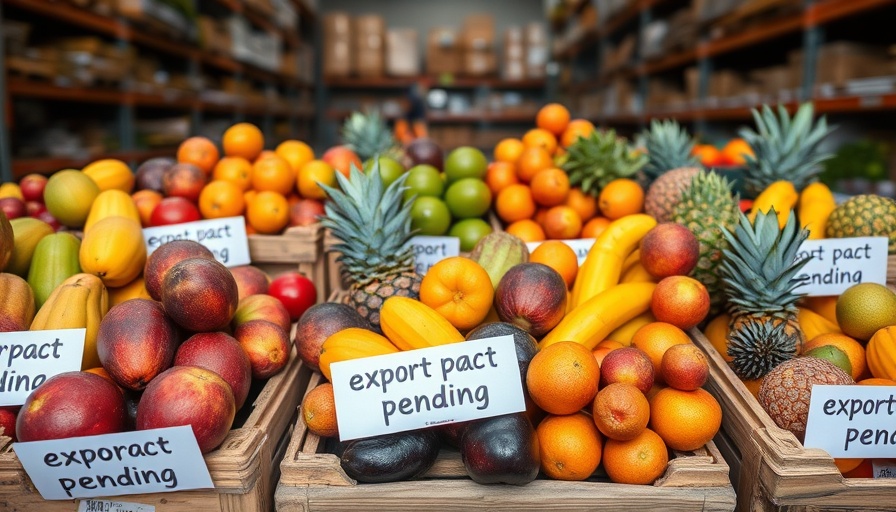
Southern Africa's Trade Landscape: A New Paradigm
In a rapidly shifting geopolitical landscape, the Southern African Development Community (SADC) is embarking on an ambitious journey to rethink its trade partnerships. As global tariffs rise and U.S. trade policies become more uncertain, SADC officials recognize the pressing need to reassess longstanding relationships and foster regional integration.
Rising Pressures and Strategic Shifts
At the recent 34th meeting of SADC's trade ministers held in Harare, Zimbabwe, officials emphasized the importance of charting a more independent trade agenda. The global economic climate is fraught with challenges, and Elias Magosi, the SADC executive secretary, highlighted how various trade dynamics are altering the region's economic landscape. "We must shape and determine our destiny going forward," he remarked, urging member states to enhance their negotiation capabilities to create favorable trade frameworks tailored to their needs.
The Threat to Established Trade Models
One significant concern looming over SADC countries is the potential expiration of the African Growth and Opportunity Act (AGOA). This trade program has historically provided duty-free access to select African nations. As the AGOA faces scrutiny, and with threats of a blanket 10% tariff on all U.S. imports, the time is ripe for SADC to consider alternative partnerships.
Magosi's call to action resonates deeply as he emphasizes the need for cooperation and unity among member states. Despite the SADC Free Trade Area launched in 2008, intra-regional trade has languished at a troubling 18%. To revitalize their local economies, SADC nations must translate agreements into measurable growth.
Uniting Forces: A Collective Approach
Amon Murwira, chairperson of the SADC Council of Ministers, stressed the importance of member unity. The unpredictability of global trade demands a collective response, particularly when it comes to challenging unilateral actions like those from the U.S. By presenting a united front, SADC can enhance its bargaining power while exploring new trade relationships, especially as global geopolitics evolve.
Mikatekiso Kubayi, a senior researcher at the Institute for Global Dialogue, advocates for a collaborative U.S. approach rather than an individual one, warning that unilateral tariffs are not just a matter of economic consequence but also a challenge to the principles of multilateralism.
Future Trends and Opportunities in Trade
As Southern Africa looks toward a future increasingly intertwined with technology and innovation, the region must embrace emerging sectors such as fintech, e-commerce, and digital transformation. These domains have the potential to reshape economic interactions both within the region and beyond, presenting an avenue for SADC to tap into the growing digital economy.
Investments in tech infrastructure—like improved internet connectivity and digital payment systems—can facilitate smoother trade flows and foster new opportunities. With sectors like agriculture also poised for digital innovation through agritech and smart farming, there lies an uncharted potential for economic growth.
Navigating the New Normal in Trade
The unanswered questions remain: How will SADC adapt to the shifting trade dynamics? Can they secure alternative markets effectively? The next steps involve not just strategic planning but a commitment to fostering a vibrant ecosystem that prioritizes both regional integration and sustainable economic growth.
To remain competitive, SADC countries must harness technological advancements while emphasizing collaboration, ultimately aiming for a resilient and inclusive economic future.
Conclusion: Taking Action Together
As SADC grapples with the complexities of trade in a volatile world, the insights shared during the recent ministerial meetings underscore the urgency for member nations to act decisively. By reinforcing intra-regional trade and embracing innovative solutions, Southern Africa can define its trade destiny and ensure a brighter economic future.
 Add Row
Add Row  Add
Add 




Write A Comment